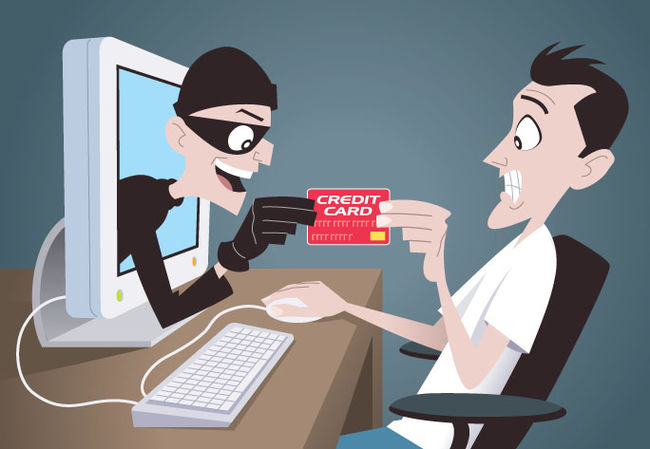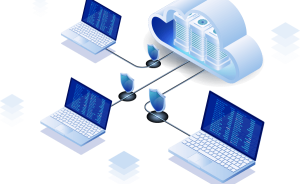The internet is a global network of billions of computers and other electronic devices. With the Internet, it’s possible to access almost any information, communicate with anyone else in the world, and do much more.
The history of the internet has gradually evolved from 1967 and the internet according to Howard et al, (2002) has become a daily necessity. In Uganda the first Internet Service Providers (ISPs) came around 1995. The internet was based on dial-up services, where users got access to emails and newsgroups only. Initially, it was limited to universities and large groups, including corporate organisations. Soon, however, even individuals started acquiring commercial internet. In early 1996, the government prepared a national Telecommunications Policy that set out, among other things.
In 1997, the Second National Operator Licence was awarded to Mobile Telephones Network (MTN) of South Africa. In the same year, 1997, the Uganda Communications Commission (UCC) was inaugurated as the sector regulator.
Over the years, Uganda in 2018 had 18.149 million Internet users, or 45.9% of the population which made them 52nd in the world, this is up from 2.5 million users in 2008 that ranked us 64th in the world.
According to UCC, the ICT sector has over UGX. 14.2 Trillion in direct sector revenues over the last five years and this is projected to grow to UGX 18 Trillion in the next five years. The Sector has experienced about 8% Year on Year revenue growth rate in the last five years and an estimated UGX 2.57 Trillion in sector taxes in the previous five years. ICT tax revenue projections for the next five years are projected at UGX 3.2 Trillion In 2006, ten years after the creation of the Commission, the government created the Ministry of ICT. It merged three sectors; Information, Communications and Regulation of telecommunications technology.
The internet is still evolving ,and not just its infrastructure ,but how we use it and where we use it are also continuously changing and this has also come up with reasons behind theft on the internet that is Cybercriminals/ Thieves on the internet space are creating viruses and Trojans that steal account information and key files of various program products and resources from infected computers, for the benefit of the thief and use your information for illicit or illegal activities. Once your personal information is received by the hacker who placed spyware on your computer, they can now Steal money and open credit cards and bank accounts in your name as well sell it to other parties who will use it for illegal purposes
In recent years, there has also been a constant increase in the number of Trojans that steal personal information from network games for unauthorised use or resale of a legitimate user’s login and password details and this was because originally, many of these Trojans were written by young people that couldn’t afford to pay for Internet services: `
Cybercrimes are now a global problem that affects lots of spheres of human life.
The police all over the world has to study how to deal with this type of crimes, every new gadget and software product becomes the target for cyber criminals sooner or later, so their manufacturers do everything that is possible to be one step ahead.
Almost everything we see in our daily life may need some of a cyber security. Even when we are totally offline, there are cameras around us and lots of digital devices that could be turned on us if not the security specialists who protect them from intervention and enhance this protection every day.
How to stay safe
Spyware used for online identity theft can be the most harmful and difficult to remove of any type of malware, a few things that can help you improve your level of online identity theft security are :
· Continually check the accuracy of personal accounts and deal with any discrepancies immediately
· Avoid questionable websites
· Practice safe email protocol for instance Don’t open messages from unknown senders as well Immediately delete messages you suspect to be spam
· Only download software from sites you trust. Carefully evaluate free software and file-sharing applications before downloading them.
· Get the latest Windows patches
· Use public computers with extreme caution
· Use antivirus protection and a firewall
The best identity theft protection begins by avoiding spyware infection in the first place. Virus protection products guard against spyware entering your computer and prevent it from exposing your personal data and slowing your computer through damage to your files and programs. A good antispyware program searches every place on your PC where spyware can hide and removes every trace to boost your PC performance and keep you safe from intrusion. While free antispyware downloads are available, they just can’t keep up with the continuous onslaught of new spyware strains. Previously undetected forms of spyware can often do the most damage to your computer, so it’s critical to have up-to-the-minute online identity theft protection.
How to Protect Yourself from Identity Theft
The more you’re able to protect yourself from identity theft, the less likely you are to be victimized. These proactive measures are centered around keeping your personal data safe from prying eyes, and creating a stronger barrier between yourself and identity thieves:
Be mindful of your passwords. Create strong passwords, and be sure not to use the same password more than once. Secure password managers like 1Password and Bit warden are solid options that can help you keep track of them. In addition to keeping strong passwords, opt for two-factor authentication whenever possible and always password-protect your devices.
Never share personal information over the phone. Legitimate institutions—including banks, the IRS and the Social Security Administration—will never call you and demand that you share things like your Social Security number or bank account number. Scammers, on the other hand, will.






